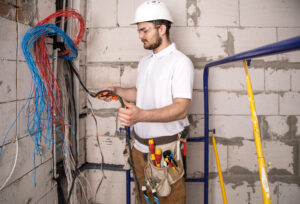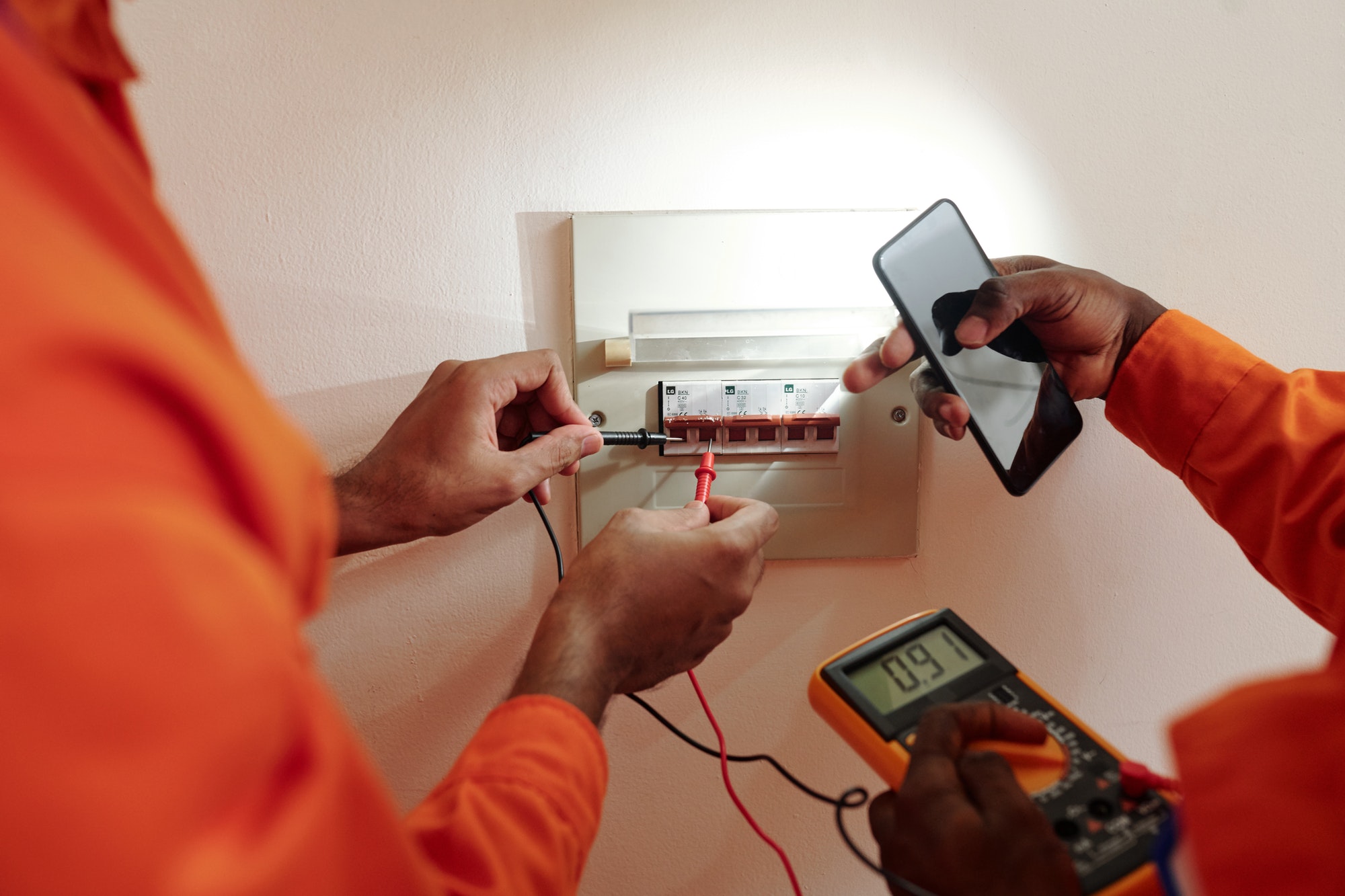Electrical wiring is a critical infrastructure component of any property, but it doesn’t last forever. Aging or faulty wiring can pose serious safety risks, including the potential for electrical fires. Recognizing the signs that your property might need rewiring is crucial for maintaining safety and functionality. Here are some key indicators that suggest your property may require a comprehensive rewiring.
1. Frequent Circuit Breaker Trips
One of the most common signs of problematic wiring is a circuit breaker that frequently trips. While it’s normal for a breaker to trip occasionally, especially when high-power appliances are used, a breaker that trips frequently indicates that your system is overloaded and potentially unsafe.
2. Flickering or Dimming Lights
If the lights in your home flicker or dim frequently, especially when you use appliances like a microwave or a hairdryer, it’s a sign that your electrical system may not be up to the task. This can be due to poor wiring or an overloaded electrical system.
3. Buzzing Sounds or Burning Smells
Any buzzing sounds from outlets or switches, or a burning smell coming from electrical components, are immediate red flags. These symptoms could indicate that your electrical wiring is overheating, which can lead to an electrical fire.
4. Discolored Switches and Outlets
Discoloration of outlets and switches can be a sign of hidden heat damage that can pose significant risks. If you notice any signs of brown or black discoloration, it’s important to get a professional to inspect your wiring immediately.
5. Outdated Wiring
If your home is over 25 years old and hasn’t had its wiring inspected recently, it may be using outdated technology or materials that no longer meet safety standards. Older wiring systems, such as knob and tube wiring, do not have the capacity to handle the electrical load of modern households.
6. Lack of Ground Fault Circuit Interrupter (GFCI) Outlets
Modern electrical codes require that GFCI outlets be installed in areas where water is present, such as bathrooms, kitchens, and outdoors. If your property lacks these safety features, it’s likely that other aspects of the wiring are also outdated or not up to code.
7. Aluminum Wiring
Homes built during the 1960s and 70s might have aluminum wiring, which is more likely to cause a fire than copper wiring. If you suspect your home has aluminum wiring, it’s important to get a professional assessment.
8. Insufficient Outlets
Using too many extension cords or power strips can indicate that you have too few outlets to meet your needs. This can lead to overloading circuits, which is a common fire hazard.
9. Shock or Tingling Sensation When Touching Appliances
Feeling a mild shock or tingling sensation when you touch appliances can be a sign of improper grounding or electrical leakage, which can be dangerous.
Conclusion
Recognizing these signs and taking action is crucial for the safety and efficiency of your property’s electrical system. If you notice any of these red flags, it’s important to contact a licensed electrician who can conduct a thorough inspection and determine if your home needs rewiring. Addressing these issues promptly can prevent potential hazards and ensure that your electrical system is safe, functional, and up-to-date.







